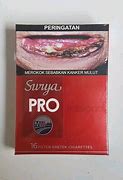
Persistence of Slots during Coexistence#
In Coexistence of NLU-based and CALM systems the action action_reset_routing resets all slots and hides events from featurization for the NLU-based system policies to prevent them from seeing events that originated while CALM was active. However, you might want to share some slots that both CALM and the NLU-based system should be able to use. One use case for these slots are basic user profile slots. Both the NLU-based system and CALM should likely be able to know whether a user is logged in or not, what their user name is, or what channel they are using. If you are storing this kind of data in slots you can annotate those slot definitions with the option shared_for_coexistence: True.
shared_for_coexistence: True
shared_for_coexistence: True
In the coexistence mode, if the option shared_for_coexistence is NOT set to true, it invalidates the reset_after_flow_ends: False property in the flow definition. In order for the slot value to be retained throughout the conversation, the shared_for_coexistence must be set to true.
Konter4D: Togel Rasa Konter Pulsa! Angka Langsung Nempel di Konter 4D!
KONTER4D - Konter4D adalah platform yang menawarkan pengalaman bermain togel yang menyenangkan dan mudah. Dengan tagline "Togel Rasa Konter Pulsa! Angka Langsung Nempel di Konter 4D!", setiap pemain dapat merasakan kemudahan dalam memasang angka dan meraih kemenangan. Proses pendaftaran yang cepat dan dukungan pelanggan yang siap membantu memastikan semua pemain merasa nyaman. Nikmati keseruan bermain togel dengan cara yang sederhana dan praktis. Bergabunglah dengan Konter4D dan lihat bagaimana angka-angka yang Anda pilih bisa membawa Anda pada kemenangan yang diimpikan!
In Rasa, your domain defines the universe in which your assistant operates. Specifically, it lists:
If you are building an NLU-based assistant, refer to the Domain documentation to see how intents, entities, slot mappings, and slot featurization can be configured in your domain.
Custom Slot Mappings#
You can define custom slot mappings using slot validation actions when none of the predefined mappings fit your use case. You must define this slot mapping to be of type custom, for example:
action: action_calculate_day_of_week
You can also use the custom slot mapping to list slots that will be filled by arbitrary custom actions in the course of a conversation, by listing the type and no specific action. For example:
This slot will not be updated on every user turn, but only once a custom action that returns a SlotSet event for it is predicted.
You can provide an initial value for a slot in your domain file:
Responses are actions that send a message to a user without running any custom code or returning events. These responses can be defined directly in the domain file under the responses key and can include rich content such as buttons and attachments. For more information on responses and how to define them, see Responses.
Forms are a special type of action meant to help your assistant collect information from a user. Define forms under the forms key in your domain file. For more information on form and how to define them, see Forms.
Actions are the things your bot can actually do. For example, an action could:
All custom actions should be listed in your domain, except responses which need not be listed under actions: as they are already listed under responses:.
Session configuration#
A conversation session represents the dialogue between the assistant and the user. Conversation sessions can begin in three ways:
the user begins the conversation with the assistant,
the user sends their first message after a configurable period of inactivity, or
a manual session start is triggered with the /session_start intent message.
You can define the period of inactivity after which a new conversation session is triggered in the domain under the session_config key.
Available parameters are:
The default session configuration looks as follows:
session_expiration_time: 60 # value in minutes, 0 means infinitely long
carry_over_slots_to_new_session: true # set to false to forget slots between sessions
This means that if a user sends their first message after 60 minutes of inactivity, a new conversation session is triggered, and that any existing slots are carried over into the new session. Setting the value of session_expiration_time to 0 means that sessions will not end (note that the action_session_start action will still be triggered at the very beginning of conversations).
A session start triggers the default action action_session_start. Its default implementation moves all existing slots into the new session. Note that all conversations begin with an action_session_start. Overriding this action could for instance be used to initialize the tracker with slots from an external API call, or to start the conversation with a bot message. The docs on Customizing the session start action shows you how to do that.
The config key in the domain file maintains the store_entities_as_slots parameter. This parameter is used only in the context of reading stories and turning them into trackers. If the parameter is set to True, this will result in slots being implicitly set from entities if applicable entities are present in the story. When an entity matches the from_entity slot mapping, store_entities_as_slots defines whether the entity value should be placed in that slot. Therefore, this parameter skips adding an explicit slot_was_set step manually in the story. By default, this behaviour is switched on.
You can turn off this functionality by setting the store_entities_as_slots parameter to false:
store_entities_as_slots: false
If you're looking for information on the config.yml file, check out the docs on Model Configuration.
A story is a representation of a conversation between a user and an AI assistant, converted into a specific format where user inputs are expressed as intents (and entities when necessary), while the assistant's responses and actions are expressed as action names.
Here's an example of a dialogue in the Rasa story format:
- story: collect restaurant booking info # name of the story - just for debugging
- intent: greet # user message with no entities
- action: utter_ask_howcanhelp
- intent: inform # user message with entities
- action: utter_on_it # action that the bot should execute
- action: utter_ask_cuisine
- action: utter_ask_num_people
While writing stories, you do not have to deal with the specific contents of the messages that the users send. Instead, you can take advantage of the output from the NLU pipeline, which lets you use just the combination of an intent and entities to refer to all the possible messages the users can send to mean the same thing.
It is important to include the entities here as well because the policies learn to predict the next action based on a combination of both the intent and entities (you can, however, change this behavior using the use_entities attribute).
All actions executed by the bot, including responses are listed in stories under the action key.
You can use a response from your domain as an action by listing it as one in a story. Similarly, you can indicate that a story should call a custom action by including the name of the custom action from the actions list in your domain.
During training, Rasa does not call the action server. This means that your assistant's dialogue management model doesn't know which events a custom action will return.
Because of this, events such as setting a slot or activating/deactivating a form have to be explicitly written out as part of the stories. For more info, see the documentation on Events.
Slot events are written under slot_was_set in a story. If this slot is set inside a custom action, add the slot_was_set event immediately following the custom action call. If your custom action resets a slot value to None, the corresponding event for that would look like this:
- story: set slot to none
# ... other story steps
- action: my_custom_action
There are three kinds of events that need to be kept in mind while dealing with forms in stories.
A form action event (e.g. - action: restaurant_form) is used in the beginning when first starting a form, and also while resuming the form action when the form is already active.
A form activation event (e.g. - active_loop: restaurant_form) is used right after the first form action event.
A form deactivation event (e.g. - active_loop: null), which is used to deactivate the form.
In order to get around the pitfall of forgetting to add events, the recommended way to write these stories is to use interactive learning.
The requested_slot slot#
The slot requested_slot is automatically added to the domain as a slot of type text. The value of the requested_slot will be ignored during conversations. If you want to change this behavior, you need to add the requested_slot to your domain file as a categorical slot with influence_conversation set to true. You might want to do this if you want to handle your unhappy paths differently, depending on what slot is currently being asked from the user. For example, if your users respond to one of the bot's questions with another question, like why do you need to know that? The response to this explain intent depends on where we are in the story. In the restaurant case, your stories would look something like this:
- story: explain cuisine slot
- intent: request_restaurant
- action: restaurant_form
- active_loop: restaurant
- requested_slot: cuisine
- action: utter_explain_cuisine
- action: restaurant_form
- story: explain num_people slot
- intent: request_restaurant
- action: restaurant_form
- active_loop: restaurant
- requested_slot: cuisine
- requested_slot: num_people
- action: utter_explain_num_people
- action: restaurant_form
Again, it is strongly recommended that you use interactive learning to build these stories.
Calling Responses from Custom Actions#
You can use the responses to generate response messages from your custom actions. If you're using Rasa SDK as your action server, you can use the dispatcher to generate the response message, for example:
from rasa_sdk.interfaces import Action
class ActionGreet(Action):
return 'action_greet'
def run(self, dispatcher, tracker, domain):
dispatcher.utter_message(template="utter_greet")
If you use a different custom action server, your server should return the following JSON to call the utter_greet response:
"template":"utter_greet"
To use forms with Rasa Open Source you need to make sure that the Rule Policy is added to your policy configuration. For example:
Define a form by adding it to the forms section in your domain. The name of the form is also the name of the action which you can use in stories or rules to handle form executions. You also need to define slot mappings for each slot which your form should fill. You can specify one or more slot mappings for each slot to be filled.
The following example form restaurant_form will fill the slot cuisine from an extracted entity cuisine and slot num_people from entity number.
You can define a list of intents to ignore for the whole form under the ignored_intents key. Intents listed under ignored_intents will be added to the not_intent key of each slot mapping in the form.
For example, if you do not want any of the required slots of a form to be filled when the intent is chitchat, then you would need to define the following (after the form name and under the ignored_intents keyword):
The required_slots keyword was introduced. The following syntax is deprecated and will be removed in 3.0.0:
# this format is deprecated
Once the form action gets called for the first time, the form gets activated and will
prompt the user for the next required slot value. It does this by
looking for a response called
utter_ask_
To activate a form you need to add a story or rule, which describes when the assistant should run the form. In the case a specific intent triggering a form, you can for example use the following rule:
- rule: Activate form
- intent: request_restaurant
- action: restaurant_form
- active_loop: restaurant_form
The active_loop: restaurant_form step indicates that the form should be activated after restaurant_form was run.
A form will automatically deactivate itself once all required slots are filled. You can describe your assistant's behavior for the end of a form with a rule or a story. If you don't add an applicable story or rule, the assistant will automatically listen for the next user message after the form is finished. The following example runs the utterance utter_all_slots_filled as soon as the form your_form filled all required slots.
# Condition that form is active.
- active_loop: restaurant_form
# Form is deactivated
- action: restaurant_form
- requested_slot: null
# The actions we want to run when the form is submitted.
- action: utter_submit
- action: utter_slots_values
Users might want to break out of a form early. Please see Writing Stories / Rules for Unhappy Form Paths on how to write stories or rules for this case.
Rasa Open Source comes with four predefined mappings to fill the slots of a form based on the latest user message. Please see Custom Slot Mappings if you need a custom function to extract the required information.
The from_entity mapping fills slots based on extracted entities. It will look for an entity called entity_name to fill a slot slot_name. If intent_name is None, the slot will be filled regardless of intent name. Otherwise, the slot will only be filled if the user's intent is intent_name.
If role_name and/or group_name are provided, the role/group label of the entity also needs to match the given values. The slot mapping will not apply if the intent of the message is excluded_intent. Note that you can also define lists of intents for the parameters intent and not_intent.
not_intent: excluded_intent
In from_entity mapping, when an extracted entity uniquely maps onto a slot, the slot will be filled even if this slot wasn't requested by the form. The extracted entity will be ignored if the mapping is not unique.
In the example above, an entity date uniquely sets the slot arrival_date, an entity city with a role from uniquely sets the slot departure_city and an entity city with a role to uniquely sets the slot arrival_city, therefore they can be used to fit corresponding slots even if these slots were not requested. However, entity city without a role can fill both departure_city and arrival_city slots, depending which one is requested, so if an entity city is extracted when slot arrival_date is requested, it'll be ignored by the form.
The from_text mapping will use the text of the next user utterance to fill the slot slot_name. If intent_name is None, the slot will be filled regardless of intent name. Otherwise, the slot will only be filled if the user's intent is intent_name.
The slot mapping will not apply if the intent of the message is excluded_intent. Note that you can define lists of intents for the parameters intent and not_intent.
not_intent: excluded_intent
The from_intent mapping will fill slot slot_name with value my_value if user intent is intent_name or None. The slot mapping will not apply if the intent of the message is excluded_intent. Note that you can also define lists of intents for the parameters intent and not_intent.
The from_intent slot mapping will not apply during the initial activation of the form. To fill a slot based on the intent that activated the form, use the from_trigger_intent mapping.
not_intent: excluded_intent
The from_trigger_intent mapping will fill slot slot_name with value my_value if the form was activated by a user message with intent intent_name. The slot mapping will not apply if the intent of the message is excluded_intent. Note that you can also define lists of intents for the parameters intent and not_intent.
- type: from_trigger_intent
not_intent: excluded_intent
Ignoring Entities for Certain Intents#
To ignore all entities for certain intents, you can add the use_entities: [] parameter to the intent in your domain file like this:
To ignore some entities or explicitly take only certain entities into account you can use this syntax:
You can only use_entities or ignore_entities for any single intent.
Excluded entities for those intents will be unfeaturized and therefore will not impact the next action predictions. This is useful when you have an intent where you don't care about the entities being picked up.
If you list your intents without a use_entities or ignore_entities parameter, the entities will be featurized as normal.
It is also possible to ignore an entity for all intents by setting the influence_conversation flag to false for the entity itself. See the entities section for details.
Excluded entities for intents will be unfeaturized and therefore will not impact the next action predictions. This is useful when you have an intent where you don't care about the entities being picked up.
If you list your intents without this parameter, and without setting influence_conversation to false for any entities, all entities will be featurized as normal.
If you want these entities not to influence action prediction via slots either, set the influence_conversation: false parameter for slots with the same name.
As of 3.1, you can use the influence_conversation flag under entities. The flag can be set to false to declare that an entity should not be featurized for any intents. It is a shorthand syntax for adding an entity to the ignore_entities list of every intent in the domain. The flag is optional and default behaviour remains unchanged.
The entities section lists all entities that can be extracted by any entity extractor in your NLU pipeline.
- PERSON # entity extracted by SpacyEntityExtractor
- time # entity extracted by DucklingEntityExtractor
- membership_type # custom entity extracted by DIETClassifier
- priority # custom entity extracted by DIETClassifier
When using multiple domain files, entities can be specified in any domain file, and can be used or ignored by any intent in any domain file.
If you are using the feature Entity Roles and Groups you also need to list the roles and groups of an entity in this section.
- city: # custom entity extracted by DIETClassifier
- topping: # custom entity extracted by DIETClassifier
- size: # custom entity extracted by DIETClassifier
By default, entities influence action prediction. To prevent extracted entities from influencing the conversation for specific intents you can ignore entities for certain intents. To ignore an entity for all intents, without having to list it under the ignore_entities flag of each intent, you can set the flag influence_conversation to false under the entity:
influence_conversation: false
This syntax has the same effect as adding the entity to the ignore_entities list for every intent in the domain.
Explicitly setting influence_conversation: true does not change any behaviour. This is the default setting.
Slots are your bot's memory. They act as a key-value store which can be used to store information the user provided (e.g their home city) as well as information gathered about the outside world (e.g. the result of a database query).
Slots are defined in the slots section of your domain with their name, type and if and how they should influence the assistant's behavior. The following example defines a slot with name "slot_name", type text and predefined slot mapping from_entity.
Slots and Conversation Behavior#
You can specify whether or not a slot influences the conversation with the influence_conversation property.
If you want to store information in a slot without it influencing the conversation, set influence_conversation: false when defining your slot.
The following example defines a slot age which will store information about the user's age, but which will not influence the flow of the conversation. This means that the assistant will ignore the value of the slot each time it predicts the next action.
influence_conversation: false
When defining a slot, if you leave out influence_conversation or set it to true, that slot will influence the next action prediction, unless it has slot type any. The way the slot influences the conversation will depend on its slot type.
The following example defines a slot home_city that influences the conversation. A text slot will influence the assistant's behavior depending on whether the slot has a value. The specific value of a text slot (e.g. Bangalore or New York or Hong Kong) doesn't make any difference.
influence_conversation: true
As an example, consider the two inputs "What is the weather like?" and "What is the weather like in Bangalore?" The conversation should diverge based on whether the home_city slot was set automatically by the NLU. If the slot is already set, the bot can predict the action_forecast action. If the slot is not set, it needs to get the home_city information before it is able to predict the weather.
Storing true or false values.
If influence_conversation is set to true, the assistant's behavior will change depending on whether the slot is empty, set to true or set to false. Note that an empty bool slot influences the conversation differently than if the slot was set to false.
Storing slots which can take one of N values.
If influence_conversation is set to true, the assistant's behavior will change depending on the concrete value of the slot. This means the assistant's behavior is different depending on whether the slot in the above example has the value low, medium, or high.
A default value __other__ is automatically added to the user-defined values. All values encountered which are not explicitly defined in the slot's values are mapped to __other__. __other__ should not be used as a user-defined value; if it is, it will still behave as the default to which all unseen values are mapped.
Storing real numbers.
max_value=1.0, min_value=0.0
If influence_conversation is set to true, the assistant's behavior will change depending on the value of the slot. If the value is between min_value and max_value, the specific value of the number is used. All values below min_value will be treated as min_value, and all values above max_value will be treated as max_value. Hence, if max_value is set to 1, there is no difference between the slot values 2 and 3.5.
Storing arbitrary values (they can be of any type, such as dictionaries or lists).
Slots of type any are always ignored during conversations. The property influence_conversation cannot be set to true for this slot type. If you want to store a custom data structure which should influence the conversation, use a custom slot type.
Maybe your restaurant booking system can only handle bookings for up to 6 people. In this case you want the value of the slot to influence the next selected action (and not just whether it's been specified). You can do this by defining a custom slot class.
The code below defines a custom slot class called NumberOfPeopleSlot. The featurization defines how the value of this slot gets converted to a vector so Rasa machine learning model can deal with it. The NumberOfPeopleSlot has three possible “values”, which can be represented with a vector of length 2.
from rasa.shared.core.slots import Slot
class NumberOfPeopleSlot(Slot):
def feature_dimensionality(self):
def as_feature(self):
r = [0.0] * self.feature_dimensionality()
You can implement a custom slot class as an independent python module, separate from custom action code. Save the code for your custom slot in a directory alongside an empty file called "__init__.py" so that it will be recognized as a python module. You can then refer to the custom slot class by it's module path.
For example, say you have saved the code above in "addons/my_custom_slots.py", a directory relative to your bot project:
│ └── my_custom_slots.py
Your custom slot type's module path is then addons.my_custom_slots.NumberOfPeopleSlot. Use the module path to refer to the custom slot type in your domain file:
type: addons.my_custom_slots.NumberOfPeopleSlot
influence_conversation: true
Now that your custom slot class can be used by Rasa, add training stories that diverge based on the value of the people slot. You could write one story for the case where people has a value between 1 and 6, and one for a value greater than six. You can choose any value within these ranges to put in your stories, since they are all featurized the same way (see the featurization table above).
- story: collecting table info
# ... other story steps
- action: action_book_table
- story: too many people at the table
# ... other story steps
- action: action_explain_table_limit
As of 3.0, slot mappings are defined in the slots section of the domain. This change removes the implicit mechanism of setting slots via auto-fill and replaces it with a new explicit mechanism of setting slots after every user message. You will need to explicitly define slot mappings for each slot in the slots section of domain.yml. If you are migrating from an earlier version, please read through the migration guide to update your assistant.
Rasa comes with four predefined mappings to fill slots based on the latest user message.
In addition to the predefined mappings, you can define custom slot mappings. All custom slot mappings should contain a mapping of type custom.
Slot mappings are specified as a YAML list of dictionaries under the key mappings in the domain file. Slot mappings are prioritized in the order they are listed in the domain. The first slot mapping found to apply will be used to fill the slot.
The default behavior is for slot mappings to apply after every user message, regardless of the dialogue context. To make a slot mapping apply only within the context of a form see Mapping Conditions. There is one additional default limitation on applying from_entity slot mappings in the context of a form; see unique from_entity mapping matching for details.
Note that you can also define lists of intents for the optional parameters intent and not_intent.
The from_entity slot mapping fills slots based on extracted entities. The following parameters are required:
The following parameters are optional and can be used to further specify when the mapping applies:
not_intent: excluded_intent
There is an intentional limitation on applying from_entity slot mappings in the context of a form. When a form is active, a from_entity slot mapping will be applied only if one or more of the following conditions are met:
This limitation exists to prevent a form from filling multiple required slots with the same extracted entity value.
For example, in the example below, an entity date uniquely sets the slot arrival_date, an entity city with a role from uniquely sets the slot departure_city and an entity city with a role to uniquely sets the slot arrival_city, therefore they can be used to fit corresponding slots even if these slots were not requested. However, entity city without a role can fill both departure_city and arrival_city slots, depending which one is requested, so if an entity city is extracted when slot arrival_date is requested, it'll be ignored by the form.
Note that the unique from_entity mapping constraint will not prevent filling slots which are not in the active form's required_slots; those mappings will apply as usual, regardless of the uniqueness of the mapping. To limit applicability of a slot mapping to a specific form, see Mapping Conditions.
The from_text mapping will use the text of the last user utterance to fill the slot slot_name. If intent_name is None, the slot will be filled regardless of intent name. Otherwise, the slot will only be filled if the user's intent is intent_name.
The slot mapping will not apply if the intent of the message is excluded_intent.
not_intent: excluded_intent
To maintain the 2.x form behavior when using from_text slot mappings, you must use mapping conditions, where both active_loop and requested_slot keys are defined.
The from_intent mapping will fill slot slot_name with value my_value if user intent is intent_name. If you choose not to specify the parameter intent, the slot mapping will apply regardless of the intent of the message as long as the intent is not listed under not_intent parameter.
The following parameter is required:
The following parameters are optional and can be used to further specify when the mapping applies:
Note that if you choose not to define the parameter intent, the slot mapping will apply regardless of the intent of the message as long as the intent is not listed under the not_intent parameter.
not_intent: excluded_intent
The from_trigger_intent mapping will fill slot slot_name with value my_value if a form is activated by a user message with intent intent_name. The slot mapping will not apply if the intent of the message is excluded_intent.
- type: from_trigger_intent
not_intent: excluded_intent
To apply a slot mapping only within the context of a form, specify the name of the form in the conditions key of a slot mapping. Conditions list the form name(s) for which the mapping is applicable in the active_loop key.
Slot mappings can now specify null as the value of active_loop to indicate that the slot should only be filled when no form is active. Note that requested_slot cannot be used in conjunction with active_loop: null.
Conditions can also include the name of the requested_slot. If requested_slot is not mentioned, then the slot will be set if relevant information is extracted, regardless of which slot is being requested by the form.
- active_loop: your_form
requested_slot: slot_name
- active_loop: another_form
If conditions are not included in a slot mapping, the slot mapping will be applicable regardless of whether any form is active. As long as a slot is listed in a form's required_slots, the form will prompt for the slot if it is empty when the form is activated.
Using Variables in Responses#
You can use variables to insert information into responses. Within a response, a variable is enclosed in curly brackets. For example, see the variable name below:
- text: "Hey, {name}. How are you?"
When the utter_greet response is used, Rasa automatically fills in the variable with the value found in the slot called name. If such a slot doesn't exist or is empty, the variable gets filled with None.
Another way to fill in a variable is within a custom action. In your custom action code, you can supply values to a response to fill in specific variables. If you're using the Rasa SDK for your action server, you can pass a value for the variable as a keyword argument to dispatcher.utter_message:
dispatcher.utter_message(
template="utter_greet",
If you use a different custom action server, supply the values by adding extra parameters to the responses your server returns:
"template":"utter_greet",
You can make your assistant's replies more interesting if you provide multiple response variations to choose from for a given response name:
- text: "Hey, {name}. How are you?"
- text: "Hey, {name}. How is your day going?"
In this example, when utter_greet gets predicted as the next action, Rasa will randomly pick one of the two response variations to use.
You can now set an ID for any response. This is useful when you want to use the NLG server to generate the response.
Type for ID is string.
Example of response variations with ID:
text: "Hey, {name}. How are you?"
text: "Hey, {name}. How is your day going?"
Select which actions should receive domain#
You can control if an action should receive a domain or not.
To do this you must first enable selective domain in you endpoint configuration for action_endpoint in endpoints.yml.
url: "http://localhost:5055/webhook" # URL to your action server
enable_selective_domain: true
After selective domain for custom actions is enabled, domain will be sent only to those custom actions which have specifically stated that they need it. Custom actions inheriting from rasa-sdk FormValidationAction parent class are an exception to this rule as they will always have the domain sent to them. To specify if an action needs the domain add {send_domain: true} to custom action in the list of actions in domain.yml:
- action_hello_world: {send_domain: True} # will receive domain
- action_calculate_mass_of_sun # will not receive domain
- validate_my_form # will receive domain
Responses go under the responses key in your domain file or in a separate "responses.yml" file. Each response name should start with utter_. For example, you could add responses for greeting and saying goodbye under the response names utter_greet and utter_bye:
If you are using retrieval intents in your assistant, you also need to add responses for your assistant's replies to these intents:
utter_chitchat/ask_name:
- text: Oh yeah, I am called the retrieval bot.
utter_chitchat/ask_weather:
- text: Oh, it does look sunny right now in Berlin.
Notice the special format of response names for retrieval intents. Each name starts with utter_, followed by the retrieval intent's name (here chitchat) and finally a suffix specifying the different response keys (here ask_name and ask_weather). See the documentation for NLU training examples to learn more.























